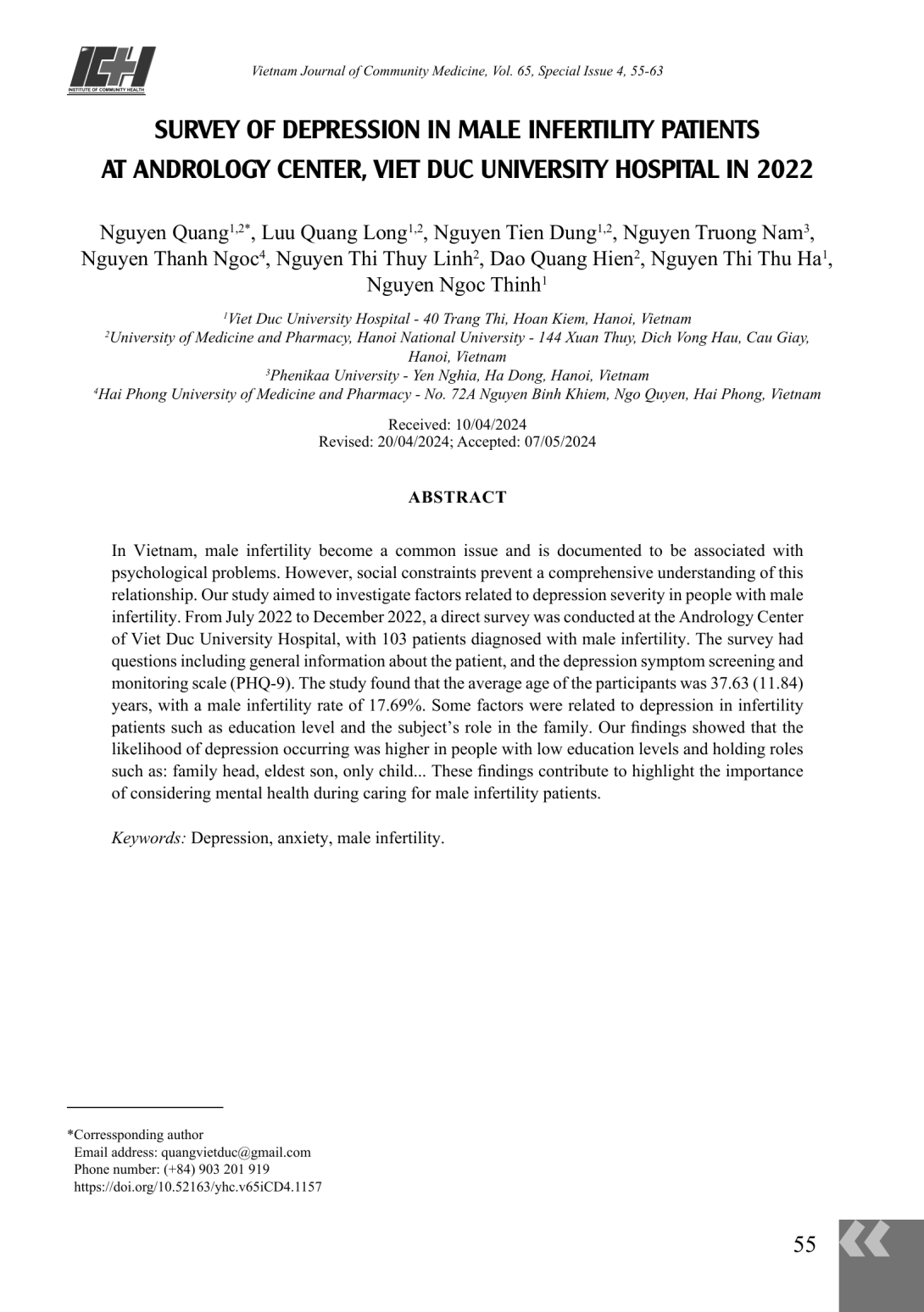
Tại Việt Nam, bệnh vô sinh nam phổ biến và được công nhận có liên quan đến những vấn đề về tâm lý. Tuy nhiên, những hạn chế về mặt xã hội cản trở sự hiểu biết toàn diện về mối liên hệ này. Nghiên cứu của chúng tôi nhằm mục đích điều tra các yếu tố liên quan đến mức độ trầm cảm ở những người bị vô sinh nam. Từ tháng 07/2022 đến tháng 12/2022, một cuộc khảo sát trực tiếp đã được thực hiện tại Trung tâm Nam học, Bệnh viện Hữu nghị Việt Đức, với 103 bệnh nhân được chẩn đoán mắc vô sinh nam. Cuộc khảo sát có những câu hỏi bao gồm thông tin chung về bệnh nhân, thang điểm tầm soát và theo dõi triệu chứng trầm cảm (PHQ-9). Nghiên cứu cho thấy độ tuổi trung bình của những người tham gia là 37,63 (11,84) tuổi, với tỷ lệ vô sinh nam là 17,69%. Một số yếu tố có liên quan đến tình trạng trầm cảm ở bệnh nhân vô sinh như trình độ học vấn, vai trò của đối tượng trong gia đình dòng họ. Phát hiện của chúng tôi cho thấy khả năng tình trạng trầm cảm xuất hiện cao hơn ở những người có trình độ học vấn thấp và nắm giữ những vai trò như: trưởng họ, con trai cả, con duy nhất... Những phát hiện này nhấn mạnh tầm quan trọng của việc xem xét sức khỏe tâm thần trong việc chăm sóc những người bị vô sinh nam.
In Vietnam, male infertility become a common issue and is documented to be associated with psychological problems. However, social constraints prevent a comprehensive understanding of this relationship. Our study aimed to investigate factors related to depression severity in people with male infertility. From July 2022 to December 2022, a direct survey was conducted at the Andrology Center of Viet Duc University Hospital, with 103 patients diagnosed with male infertility. The survey had questions including general information about the patient, and the depression symptom screening and monitoring scale (PHQ-9). The study found that the average age of the participants was 37.63 (11.84) years, with a male infertility rate of 17.69%. Some factors were related to depression in infertility patients such as education level and the subject’s role in the family. Our findings showed that the likelihood of depression occurring was higher in people with low education levels and holding roles such as: family head, eldest son, only child... These findings contribute to highlight the importance of considering mental health during caring for male infertility patients.
- Đăng nhập để gửi ý kiến
